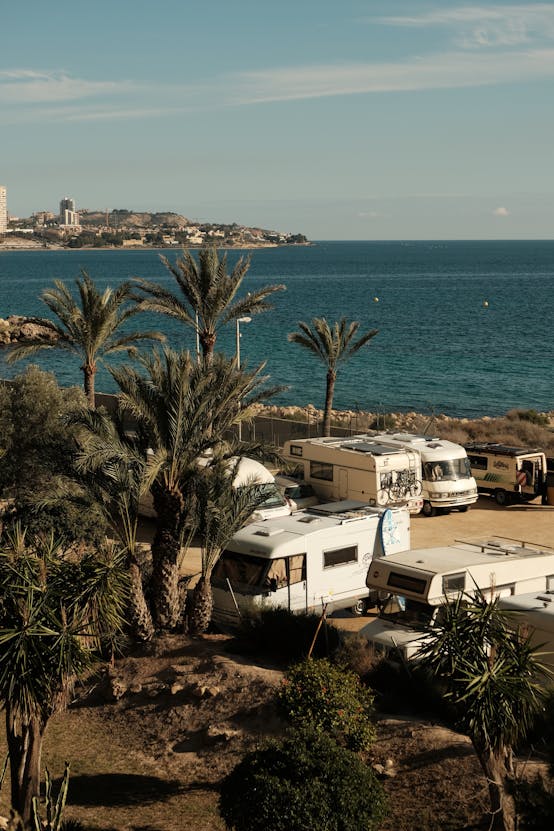Weekly Camping Meal Overview
Planning a UK camping meal plan requires careful consideration to ensure both nutrition and convenience. A well-thought-out plan keeps meal preparation at the campsite straightforward and enjoyable. When camping, ensuring nutrition is crucial, as days of outdoor activities demand a balanced diet. While convenience is key to streamline cooking, it’s also vital to maintain a healthy intake.
One effective strategy in camping meal preparation is balancing variety and simplicity. A diverse menu can be surprisingly simple when it’s meticulously organized. For example, plan meals that share common ingredients but are distinct in flavor, allowing for creativity without excessive packing. Opt for ingredients that can be used across various meals, reducing both space and burden on your supplies.
In the same genre : Explore the Best Dog-Friendly Camping Spots in the UK’s Stunning National Parks
Incorporating lightweight, non-perishable items ensures your supplies endure throughout the trip. Canned goods, vacuum-sealed packets, and dehydrated meals offer variety and ease without sacrificing taste or nutritional value. Focus on meals that are easy to cook in camp conditions, usually one-pot or quick-grill recipes, which save both time and resources. By maintaining this balance, you ensure a satisfying mealtime experience amid the great outdoors.
Daily Meal Breakdown
Effective meal planning while camping can significantly enhance the overall experience. Planning daily camping meals encourages structure and ensures variety, preventing monotony. Here’s how you can thoughtfully organise each day with nourishing meals and snacks.
In parallel : Explore the Best Dog-Friendly Camping Spots in the UK’s Stunning National Parks
Day 1: Introductory Meals
Begin with a simple but energy-boosting breakfast. Consider oatmeal with dried fruits or a quick scramble using fresh eggs. For lunch, think portable and easy to prepare, like sandwiches paired with a healthy snack such as nuts or fresh fruit. Dinner should be tasty and straightforward; perhaps a one-pot pasta dish that minimises clean-up.
Day 2: Energizing Meal Choices
Fuel your day with a breakfast packed with sustenance, like granola paired with yogurt. Lunch should strike a balance between light and filling—wraps with a hearty salad can be ideal. As the day winds down, a filling dinner like a stew or chilli can rejuvenate tired campers.
Each day’s meals should be aligned with activities planned, ensuring you’re meeting both nutritional needs and convenience. This methodology not only organises meal preparations but enriches the camping journey with varied and memorable food experiences.
H2 – Snack Ideas for Camping
Snacks are essential for keeping energy levels up during outdoor adventures. Whether savoring views from a peak or resting by a stream, a well-chosen snack can provide a necessary energy boost. It’s crucial to opt for healthy snacks that are both nutritious and convenient, suited for a UK camping meal plan.
Portable and Nutritious Snacks:
- Trail mix: A perfect blend of nuts, dried fruits, and seeds gives an instant boost in energy and nutrition. Customize it to suit your preferences by adding dark chocolate or coconut flakes.
- Rice cakes spread with nut butter make for easy-to-assemble snacks that satisfy hunger and provide a well-rounded nutritional profile.
Dips and Crunch
- Bring along fresh veggie sticks—carrots, celery, and peppers pair well with hummus or guacamole and offer refreshing crunch and taste.
Remember, snacks should align with the day’s activities. Opt for portable, non-perishable items that can withstand varying weather conditions. By thoughtfully planning your camping snacks, you ensure sustenance and enjoyment on your outdoor journey. Such preparations facilitate a balance between nutrition, convenience, and taste.
Grocery List and Cooking Essentials
Efficiently organizing a camping grocery list is pivotal for a successful outdoor feast. Start with key staples such as grains, canned goods, and dehydrated foods, which offer longevity and versatility. Then, factor in vegetables and fruits – preferably those that don’t require refrigeration, like apples and squash. Including high-protein options, like cured meats and legumes, ensures a balanced diet.
Cooking essentials are another crucial consideration. A sturdy portable stove or campfire grill forms the cornerstone of any campsite kitchen. Accompany it with a pot, a pan, and multi-use utensils for a functional set-up. Bring along a reliable cooler, packed with ice packs, to maintain the freshness of perishable items like dairy or pre-prepared meals.
For storage, consider airtight containers and resealable bags. These are excellent for keeping food fresh and preventing wildlife interference. It’s also wise to pack cleaning supplies: biodegradable soap and a dish towel aid in maintaining hygiene. Strategic planning simplifies meal prep while camping, enhancing the overall experience with convenience and efficiency.
Cooking Tips for Campgrounds
Cooking at a campsite presents both challenges and opportunities. Efficient cooking over a campfire often starts with preparation. Pre-cut ingredients before departure and store them in resealable bags. This saves time and reduces clean-up, allowing for a more enjoyable experience.
Meal prep ahead of time is invaluable, especially for long trips. Consider parboiling potatoes or pre-marinating meats to streamline outdoor cooking. These simple steps bring convenience and ensure you have more time to relax.
For safety, always manage food storage carefully. Utilize coolers and ice packs to preserve perishables like meat and dairy. Keeping cooked and raw foods separate is crucial to prevent cross-contamination. Similarly, ensure hands and utensils are clean before and after interacting with raw ingredients.
Efficient campfire cooking techniques can enhance meal quality. Use foil packets to cook ingredients evenly, and consider a Dutch oven for one-pot meals. Being adaptable with cooking fuel types, like using both gas and wood, can provide flexibility and ease in various weather conditions. Keeping these tips in mind will ensure that your meals are not only delicious but also safely prepared in the great outdoors.
Daily Meal Breakdown
Effective meal planning while camping enhances the outdoor experience by adding structure and ensuring variety. Managing daily camping meals is crucial as it prevents monotony and aligns with your activities, maintaining both nutrition and convenience.
Day 3: Wholesome and Nutritious
Start the day with a nourishing breakfast to fuel your adventures. Consider options like whole-grain porridge topped with fresh berries or nuts. Providing sustained energy, these healthy breakfast choices are indispensable.
For lunchtime, create nutritious, filling meals that keep you going. A quinoa salad with chickpeas and chopped vegetables can be both satisfying and easily packed. Use ingredients that offer long-lasting energy without weighing you down.
As night sets in, celebrate local ingredients with a meaningful dinner. Grilled fish or chicken paired with local vegetables ensures a meal that’s both culturally enriching and delicious. These dinners are perfect for embracing the flavours of your environment while keeping meal preparation simple yet fulfilling.
By incorporating these choices, your camping experience becomes a delectable journey, both in terms of taste and nutritional value, setting the tone for more days of excitement.
Dietary Accommodations
When planning a UK camping meal plan, accommodating dietary needs can enhance inclusivity and ensure everyone enjoys their meals. Whether it’s vegetarian, vegan, or gluten-free, tailoring your menu to diverse needs is easier than you might think.
Start by identifying common dietary restrictions within your group. Understanding these requirements helps you to choose appropriate ingredients. For example, swap regular pasta for gluten-free alternatives. For vegetarians or vegans, incorporate plant-based proteins such as lentils, beans, or tofu. These substitutions maintain nutritional balance while respecting dietary choices.
It’s important to pre-plan meals to avoid last-minute challenges at the campsite. Consider meals like veggie-rich quinoa bowls or chickpea salads, which cater to both taste and dietary restrictions. Ensure you have separate cooking utensils to prevent cross-contamination, especially for those with severe allergies.
Innovate with meals that unify campers despite dietary needs, such as build-your-own-taco nights using corn tortillas. This approach allows personalisation and encourages group interaction. Ultimately, being mindful of dietary accommodations not only respects individual preferences but also fosters a more inclusive and enjoyable camping experience.







